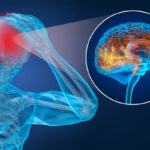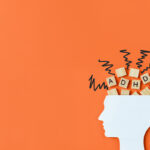It’s not uncommon to hear people casually remark, “Oh, it’s just my OCD,” when referring to a detail-oriented task. Obsessive Compulsive Disorder is much bigger than, say, double checking that you’ve taken the garbage out or proofread an email before hitting send.
Obsessive Compulsive Spectrum Disorders or OCD is a disorder characterized by recurring, unwanted thoughts, ideas, or sensations (obsessions) that make people feel driven to do something repetitively (compulsions).
These thoughts keep repeating and interfere with the daily routine and adversely affect the mental health of people. In some cases, OCD can make it so that people can barely function, and you’d be hard pressed to hear someone with the affliction use the term in a tongue-and-cheek manner.
In the US, about one in a hundred adults. and one in 200 children are diagnosed with OCD, and while symptoms can occur at any age, they often begin at 19-years-old.
Like any mental health disorder, OCD is a complex condition with variations. In this blog post, we provide an overview of the spectrum of OCD.
Symptoms of OCD
The most common symptoms of OCD include:
- Excessive cleaning and washing
- Arranging object precisely
- Touching in a sequence
- Repeating phrases and sentences
- Frequent checking
- Counting
Many people suffering from OCD know that their compulsive behaviors and obsessive thoughts are unhealthy and not normal. However, they are unable to control them, and some individuals feel that there is nothing wrong with their repetitive thoughts and behavior.
OCD Spectrum and Its Types
The complexity of OCD and its overlapping characteristics makes it challenging to categorize into specific types. However, experts have agreed on the following dimensions:
Cleaning and Contamination – Patients with these symptoms are constantly worried about getting contaminated, falling ill, coming into contact with ‘dirty’ items (like doorknobs), and hence wash hands often. Both the frequency and length of washing are abnormally high, often at rates of several times a day for 10 minutes each.
Symmetry and Ordering – People with OCD feel an overpowering urge to arrange items in a specific order. They keep arranging things till it seems “just right”, believing that bad will happen if they do not arrange it properly. They have a very specific ritual for organizing objects and are often concerned with symmetry as well.
Ruminations and Intrusive Thoughts – Morbid, violent, aberrant, or taboo thoughts can flood the minds of individuals with OCD. Such thoughts occur frequently and bring great distress and guilt. Sufferers may feel extra stress thinking that they might act on these harmful thoughts.
Hoarding – Hoarding may involve buying things that you already have in abundance. Sufferers of this symptom feel a powerful impulse to collect certain items in amounts far greater than necessary or reasonable.
Treatments
As serious a condition as OCD is, there are several proven treatments to manage symptoms:
Psychotherapy – Exposure Response Prevention Therapy and Cognitive Behavioral Therapy that train individuals to change their thinking patterns and respond differently to uncomfortable stimuli.
Relaxation – Meditation, yoga, and breathing exercises can ease symptoms.
Medication – Selective serotonin reuptake inhibitors (SSRIs) are used to help manage obsessions and compulsions. Note that these medications can only be prescribed by your doctor.
Neurofeedback – This treatment can achieve alpha and beta brainwave frequencies to operate in efficient states/ranges, resulting in relaxation of the brain and minimizing future OCD-related episodes.
OCD is of the most misunderstood mental health conditions, which is why understanding its spectrum and types is crucial to successful treatment.
Chicago Mind Solutions Treats OCD
Chicago Mind Solutions has successfully treated numerous individuals affected by OCD, helping them overcome debilitating thoughts and behaviors and restoring good quality of life. Please contact us at (224) 723-5050 or email info@chicagomindsolutions.com for more information.






